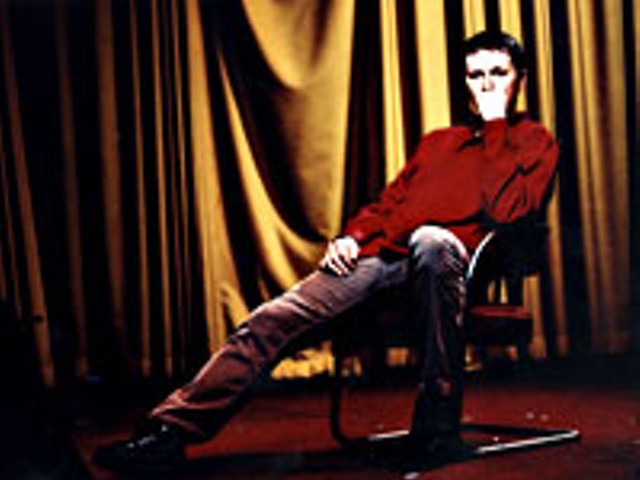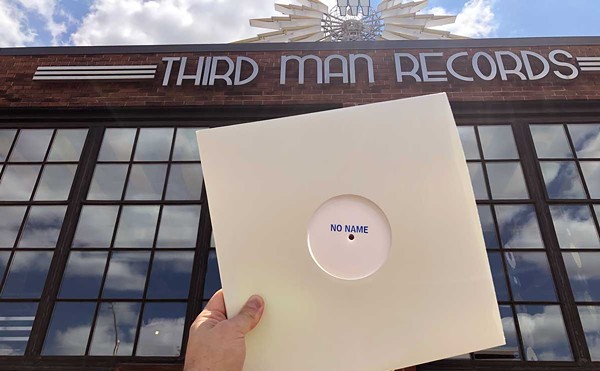Filled with song “exclusives” from 12 performing artists at the recent “All Tomorrow’s Parties” experimental music festival in Los Angeles, All Tomorrow’s Parties 1.1 is a snapshot of Sonic Youth’s curatorial choices. There’s noise rock (Dead C, Boredoms), singer-songwriter fare (Cat Power, Papa M), plain sonic nastiness (Satans Tornade) and hip hop (Cannibal Ox). This collection’s diversity, on paper anyway, would seem to guarantee impressive results. So why, after only a few listens, am I slipping off to sleep?
Sonic Youth picks kick off the comp with two instrumentals, one its own (“Fauxhemians”) and another, “Behold the Salt,” by veteran Northwest rockers Unwound. In proper context both tracks (particularly Unwound’s song, which gives Tortoise a run for its money by using Vern Rumsey’s bass like a sea beacon) could be quality mood pieces, since the message here is defiantly antisocial. And an acoustic jingle from Stephen Malkmus (ex-Pavement) does little to lighten the load. In fact, a Stereolab track, culled from when the band didn’t suck (circa 1995), is the only thing keeping the first half of the disc alive.
Moments of legitimate near-genius lie herein, like the breathe-in, breathe-out, push-push drums of Japan’s Boredoms and the soulful inclusion of Cat Power’s cover of Robert Johnson’s “Come On In My Kitchen.” But said songs are buried within Sonic Youth’s thicket of unsurprising and dour musical nods, from SY-wannabes Bardo Pond to New Zealand’s we’re-loud-and-we’re-stickin’-to-it noise-outfit Dead C.
Though this may be exactly what Sonic Youth intended (a calculated move to confound frat boys and guarantee the absence of mosh pits at the festival), the result is a record devoid of rhythm and risk. In this world black music is a hippielike curiosity, disco still sucks, Missy Elliot is not considered an experimental artist, and “real” (read: male) punk values trump teen-pop expectation, wide-eyed whimsy and the funk. In short, Sonic Youth’s ATP says more about social class than it does about one band’s glorious attempt to honestly juxtapose audiences and musics.
Carleton S. Gholz writes about music for the Metro Times. E-Mail [email protected].





